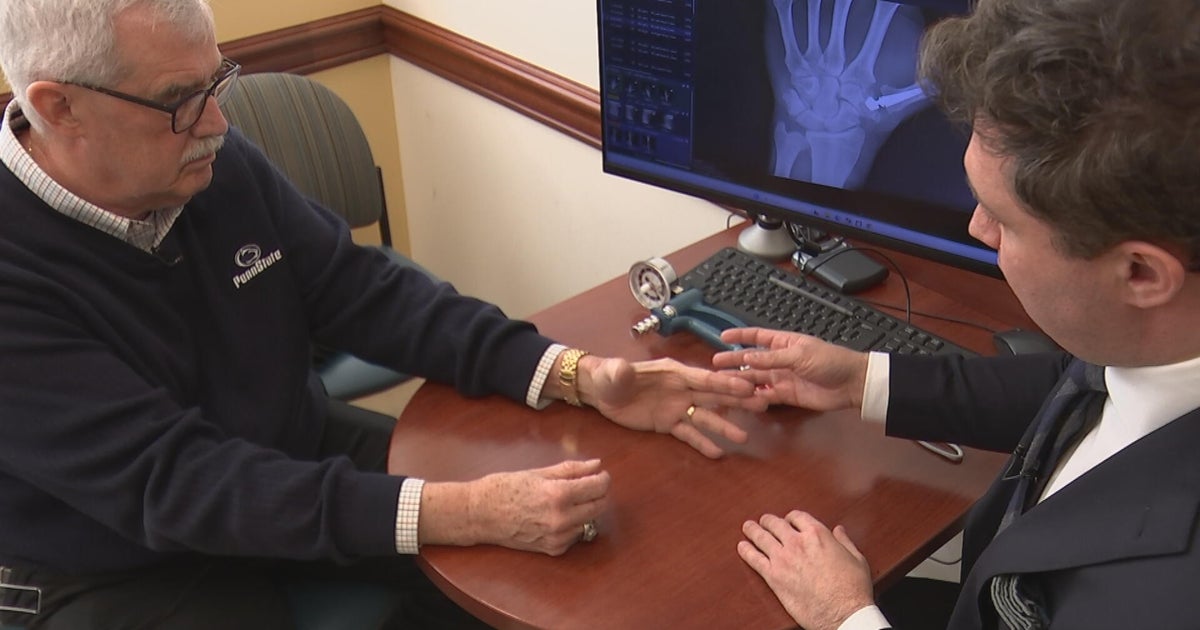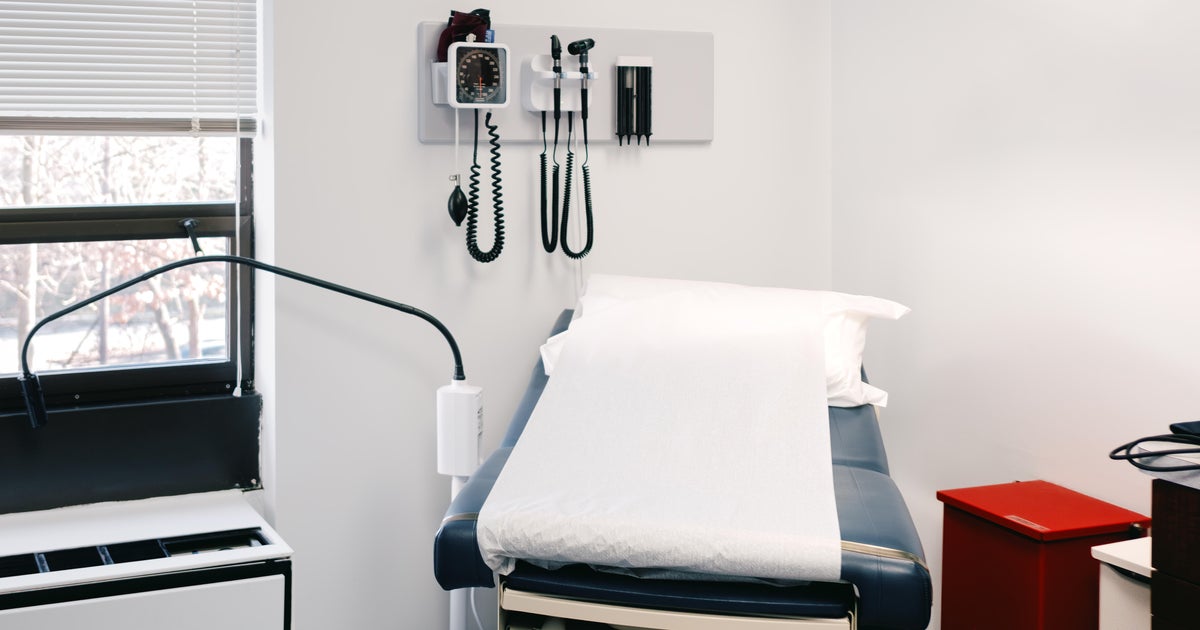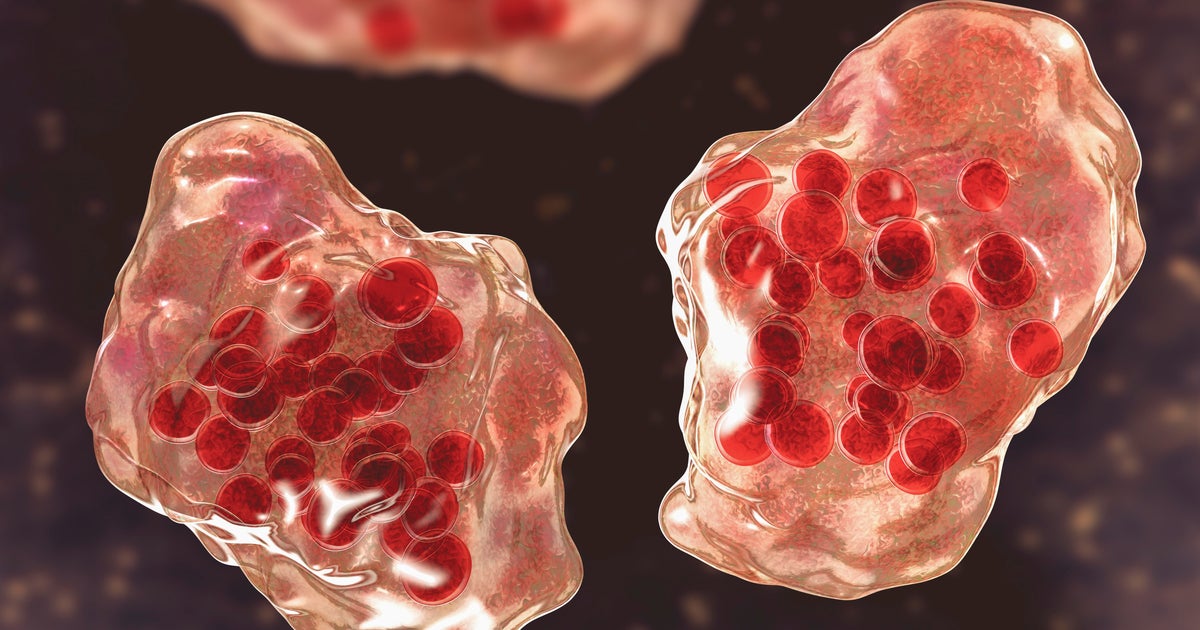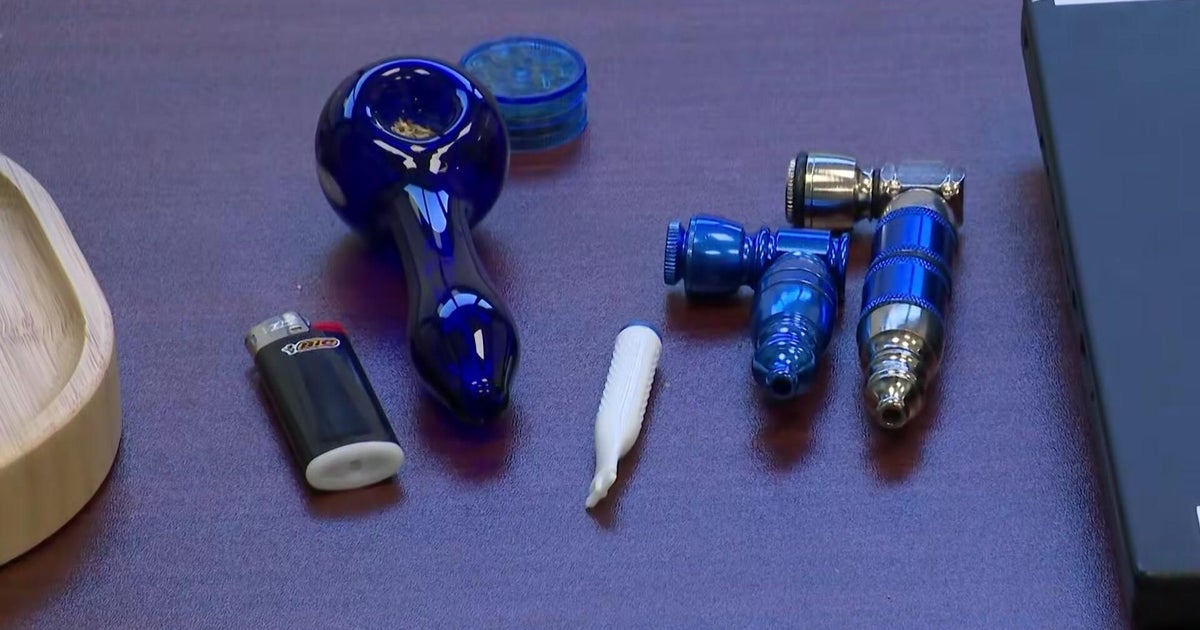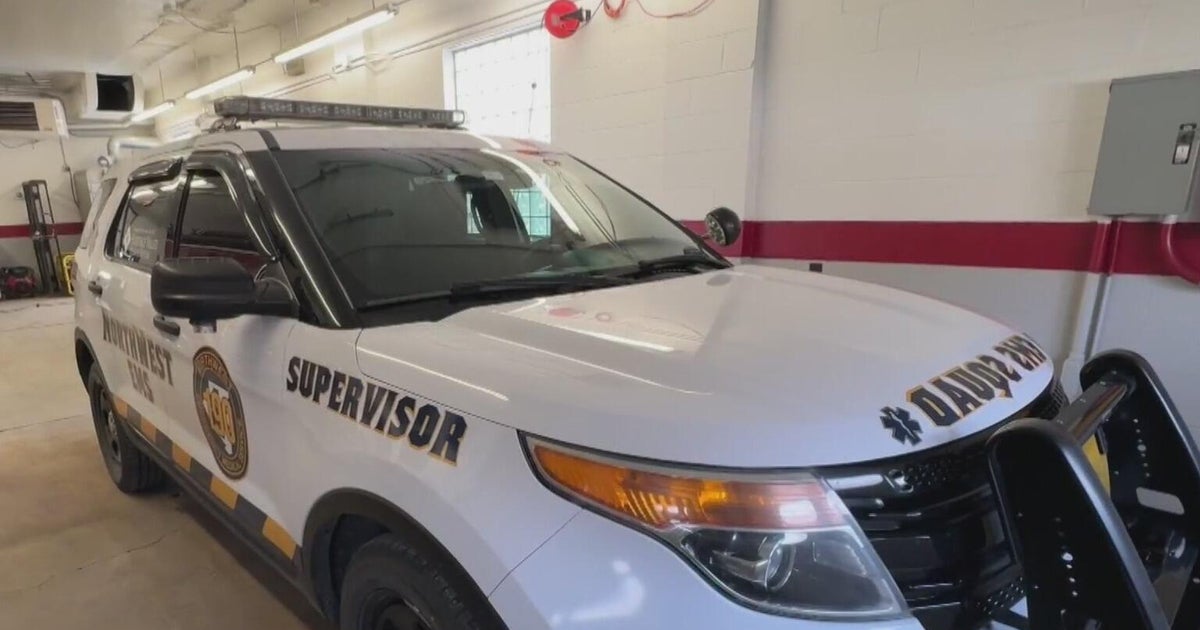Brain Surgery Option Now For Patients Crippled By Severe OCD
NEW YORK (CBSNewYork) -- Brain surgery is now an option for those crippled by severe obsessive compulsive disorder.
CBS2's Dr. Max Gomez reported the surgery to combat OCD is called deep brain stimulation. Thin wire electrodes are inserted into tiny brain areas to disrupt nerve pathways that involve action, motivation and reward processing.
Small electric currents then disrupt the amount of reward a person assigns to their repetitive and compulsive actions.
"Patients are fully awake at this stage and we have kind of a rating scale device where they rate how severe their OCD symptoms are at that time," said Dr. Mark Richardson of the University of Pittsburgh Medical Center Neurosurgery.
Over the next several weeks and months, the electrical settings are adjusted.
Randy Hirt underwent the surgery since his severe OCD became so bad he couldn't keep a job.
"I needed to take a shower, and I need to do certain things. I needed to eat breakfast, whatever, regardless of how much time I had. I think it was 17 jobs in four years," Hirt said.
The usual medication and talk therapy didn't work for Hirt until his mom came across the possibility of surgery.
"The obsession is something the person knows is unusual and silly, but the person can't control it, and the thought itself causes marked distress," said Dr. Robert Hudak of the University of Pittsburgh Medical Center.
Since his surgery four months ago, Hirt can work on his car and mow the lawn, which he couldn't do before. He's hoping that he will be able to hold a job down now.
"I would like to work again at some point. I would like to get back to work," said Hirt.
Even though deep brain stimulation has been done thousands of time for Parkinson's, epilepsy and even depression, no one is advocating it for anyone but the most severe cases of OCD that have failed all other treatments.
"I think we're just beginning to figure out the types of patients we can help, so I think there are quite a number of people in the future who are going to be helped by deep brain stimulation," said Richardson.
The procedure is approved by the Food and Drug Administration and usually covered by insurance.
